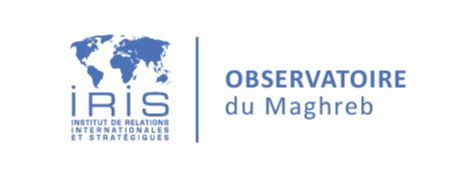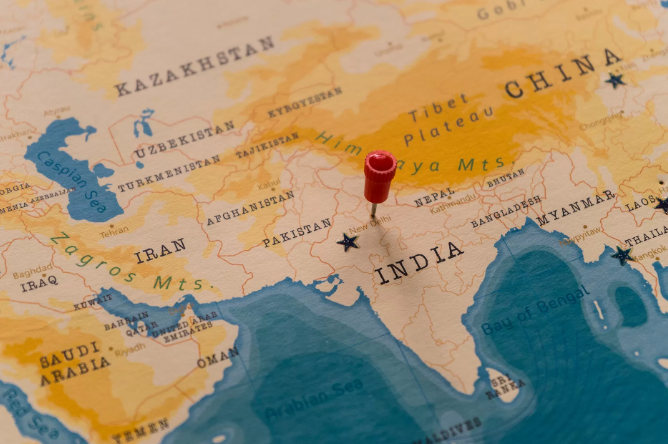LATEST ANALYSIS:

Shaping a 21st-century world order: The nation-state vs the civilizational state
US President Joe Biden positions the Ukraine war as a battle between autocracy and democracy, but that reduces what is at stake in the war: the nature of the state. And Putin isn’t the only civilizational leader out there… James M. Dorsey explores.

Research Collaboration with High-Risk Countries: What does the UK Public Think?
As geopolitical tensions continue to increase, so does research collaboration with international actors such as China. What risks should the UK Government, universities, and UK-based research programmes be aware of? And what do the British public think? Helena Ivanov writes for the Henry Jackson Society.

British Foreign Policy in a Broken World
Arthur Snell reflects on the extensive shifts in the international order that have taken place over the last two years, suggesting that the UK should recognise its own contribution to the current state of disorder and that the recent Integrated Review Refresh represents a good starting point.

China’s President Xi is Playing GO – and Winning
It’s a new world, but in many ways 2023 is like 1793 all over again… Kenneth Dekleva explores how Xi Jin Ping is playing GO while Russia blunders its chess-moves and the West struggles with tic-tac-toe. In the Cipher Brief.

The Great Reshuffle
Longtime rivals Iran and Saudi Arabia announced a deal to restore relations under the auspices of Beijing… what does this warming of relations mean for the major players in the region? Umberto Profazio investigates.

The Fallacy of a US Withdrawal from the Middle East
Amid recent Chinese diplomatic developments, Washington’s role as the most powerful external military actor remains unchanged. James M. Dorsey unravels the contemporary state of play in The Turbulent World.

The New Tunisian Order
Umberto Profazio explores Tunisian President Kais Saied’s gradual dismantling of one of the most progressive constitutions of the Middle East and North Africa (MENA) and the geopolitical implications of this slide into authoritarianism for IRIS.

Saudi nationalism and the end of Pax Americana
After turbulent years of aligning along sectarian divisions, the Middle East is getting back to its comfort zone: authoritarian nationalism. But this time, the US isn't in the centre picture. Arthur Snell explores in Not all Doom.

Unleashing an Iranian tiger
As Saudi Arabia-Iran relations thaw, what are the economic implications? If an Iranian rise and the end of US sanctions is inevitable, what role will Riadh play? James M. Dorsey explains for the South Asia Post.

Jihadists target Africa and Afghanistan, but also eye China and Russia
As the locus of Islamist militancy shifts to the African Sahel and Afghanistan in Central Asia, Russia and China find themselves in the crosshairs… James M. Dorsey explores in the Times of Israel.

Ukraine: The Crucial Year?
Ukraine’s upcoming counteroffensive could be its last chance to retake Russian-occupied territory. Is this the crucial year for Ukraine? Arthur Snell explores.

The Missing Covid Origin Debate
Did Covid-19 come from a raccoon dog or a lab leak? Brian Klaas explores how a more important debate has been hidden from public view in The Garden of Forking Paths…

What does the Saudi-Iran deal mean for Israel?
Riyadh and Tehran have signed a China negotiated deal to resume diplomatic relations. What does their rapprochement and China’s newly emboldened role in the Middle East mean for Israel? David Patrikarakos writes for the Jewish Chronicle.

Iraq and Brexit: A Common Thread of Hubris
Alexandra Hall Hall argues that both the Iraq War and Brexit were driven more by ideological conviction than rational analysis and against the advice of most experts in the Byline Times.

Why do we get the wrong leaders?
Brian Klaas’ lecture for Science & Cocktails on why we get the wrong leaders and what can be done to put better ones in charge.

Twenty years on... memories of the Iraq War
Arthur Snell reflects on the Iraq war and its legacy of inflicting suffering and chaos throughout the world for Not All Doom.

The betrayal of Baghdad
Is Iraq now the functioning democracy of Washington’s dreams, or a sectarian dystopia? Twenty years on, was it worth it? David Patrikarakos for UnHerd.

The Libyan Banking Sector: A Microcosm of Global Enduring Disorder
Jason Pack and Stefano Marcuzzi explore how the Global Enduring Disorder plays out in Libya’s banking sector and contributes to continuing instability for MEI.

India Could be the New China of the 2020s
The Russia-Ukraine War, China’s intransigent rise, American fixation with China and Russia and other new geopolitical developments present a unique opportunity for India to step up in an emerging multipolar world. James M. Dorsey explores for Fair Observer.

Threatening to Leave the ECHR would be the Perfect Terrain for Next Conservative Election Campaign
The UK Government may do just enough to rile up the Conservative Party’s voter base by engineering yet another pointless row with European bodies, writes Alexandra Hall Hall for the Byline Times.

